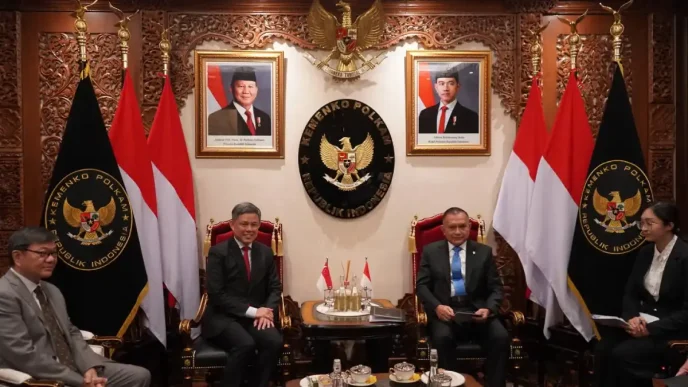As Malaysia braces for a demographic shift, with projections estimating that 15.3% of its population will be aged 60 and above by 2030, the urgency to build a robust caregiving framework has never been clearer. Under the recently unveiled 13th Malaysia Plan (13MP), the government aims to increase the number of skilled caregivers from 43,000 in 2024 to 50,000 by 2030. Yet, amid this ambitious target, a critical question looms: can Malaysia’s fragmented system of ministries and agencies align to meet the needs of its growing elderly population?
A Demographic Challenge on the Horizon
Malaysia’s ageing population is expanding at a rapid pace, a trend confirmed by the Statistics Department, which forecasts that nearly one in six Malaysians will be over 60 within the next decade. This demographic shift places immense pressure on the nation’s healthcare and social welfare systems, which are already grappling with the dual challenge of quality and accessibility in elder care. The government’s response, as outlined in the 13MP by Prime Minister Datuk Seri Anwar Ibrahim on July 31, 2025, includes a clear commitment to bolstering caregiver numbers and enhancing elderly welfare. However, the path to achieving these goals remains fraught with bureaucratic and legislative hurdles.
The need for skilled caregivers is not merely a numbers game; it is about ensuring that those tasked with caring for the elderly are adequately trained and supported. At present, the caregiving sector in Malaysia operates under a patchwork of oversight, with responsibilities split across multiple ministries. This fragmented approach risks inefficiencies and gaps in service delivery, particularly as demand surges.
Ministerial Misalignment and Legislative Delays
One of the central issues hampering progress is the lack of coordination among government bodies. Women, Family and Community Development Minister Datuk Seri Nancy Shukri acknowledged the complexity of the issue, noting that while her ministry will play a significant role, the specifics of inter-ministerial collaboration are still under discussion. “It is too early for us to reveal something that will fall under different ministries” she said on August 7, 2025. She also highlighted the need to address budget allocations for caregiver training, a critical component of scaling up the workforce.
Meanwhile, Health Minister Datuk Seri Dr Dzulkefly Ahmad clarified that his ministry currently has no direct role in training or developing skilled caregivers. “The Women, Family and Community Development Ministry is developing the Malaysian Care Industry Action Plan” he stated when contacted on the same date. This plan aims to create an affordable and accessible care ecosystem, including promoting Technical and Vocational Education and Training (TVET) for caregivers. However, the Health Ministry’s limited involvement underscores a broader disconnect in policy implementation.
A key legislative tool, the Private Aged Healthcare Facilities and Services Act 2018 (Act 802), passed on November 29, 2017, and gazetted in March 2018, remains unenforced due to pending regulations from the Attorney General’s office. Without these regulations, the Health Ministry lacks the authority to fully regulate private aged healthcare facilities or enforce licensing requirements. “The Health Ministry will only regulate private aged healthcare facilities once the Private Aged Healthcare Facilities and Services Act 2018 is enforced fully” Dr Dzulkefly added. This delay leaves a critical gap in oversight, as private facilities continue to operate without standardized guidelines for caregiver qualifications or service quality.
Voices from the Field: A Call for Unified Action
Experts in geriatric care have expressed frustration over the slow pace of reform. Dr Shahrul Bahyah Kamaruzzaman, a professor of geriatric medicine at Universiti Malaya and president of the Malaysian Healthy Ageing Society, argues that the government must show greater commitment to implementing existing policies. “There are many existing policies and Acts which have been developed to address the issues facing the ageing population, but they require regulations and implementation” she said on August 7, 2025. She emphasized that enforcement of Act 802 is essential to bring the Health Ministry and other agencies into the fold.
Dr Shahrul Bahyah also pointed to the overburdened Social Welfare Department, which currently oversees elder care alongside issues related to women and children. “Care for the elderly needs to be strategized across the life course and within an age-friendly framework, in line with policies under the World Health Organization” she urged. Her call for a dedicated coordinating body—a single ministry or agency to oversee all matters related to ageing—resonates with broader concerns about the piecemeal approach currently in place. Without such a body, she warns, the same systemic problems will persist, undermining efforts to build a sustainable care ecosystem.
The Human Cost of Inaction
Beyond the policy debates and legislative delays lies the human reality of Malaysia’s ageing population. Families like that of Shuhaidah Rozi, who cares for her 77-year-old grandmother Zawidatul Asma in Subang Jaya, embody the daily challenges faced by many. Supported by a maid, Shuhaidah’s story highlights the personal sacrifices and resource constraints that families endure in the absence of accessible, professional caregiving services. As Malaysia’s elderly population grows, the burden on individual households will only intensify unless systemic solutions are prioritized.
The Malaysian Care Industry Action Plan, spearheaded by the Women, Family and Community Development Ministry, offers a glimmer of hope. By focusing on affordability and quality through initiatives like TVET, it aims to professionalize the caregiving sector. Yet, without enforcement of key laws like Act 802 or a unified governance structure, such plans risk becoming mere rhetoric. The involvement of private and public sectors, as suggested by Dr Shahrul Bahyah, could bridge some gaps, but only if guided by strong political will and coordinated action.
Looking Ahead: A Test of Political Will
Malaysia stands at a crossroads in addressing the needs of its ageing population. The target of 50,000 skilled caregivers by 2030 is achievable, but only if the government can overcome the bureaucratic inertia and legislative delays that currently hinder progress. Inter-ministerial alignment, enforcement of existing laws, and the establishment of a dedicated oversight body are not just policy recommendations—they are imperatives for a society on the cusp of a demographic transformation.
The plight of families like Shuhaidah Rozi’s serves as a poignant reminder of what is at stake. As Malaysia moves forward with the 13th Malaysia Plan, the question remains: will the government muster the political will to create a cohesive, effective caregiving system, or will the challenges of an ageing population continue to outpace the solutions?
















